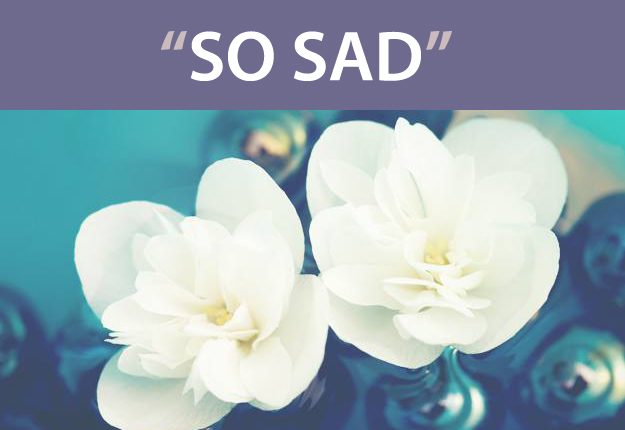Three girls born in Australia every day will become victims of Female Genital Mutilation.
There is a staggering 125 million females alive today who have undergone some degree of FGM reports The Australian Women’s Weekly. The cultural practise more commonly known as type 1 Female Genital Mutilation (FGM) in which the tip of her clitoris was cut off with a razor blade.
In its most extreme form, girls are subjected to the removal of the clitoris and labia, and the sewing up of their vagina, leaving only a small opening for urine and menstrual blood.
Aside from obvious trauma, there are several long term effects of FGM; pain, difficulty passing urine, recurrent infections, painful intercourse, inability to have intercourse, difficulty during childbirth, urinary fistula and others.
While FGM has never been a traditional practice in Australia, an increase in migration from FGM affected countries means that it is happening in our region.
In fact, campaigners at No FGM Australia estimate that with up to 1100 babies per year being born to women who are likely to have undergone FGM in their native countries, as many as three girls a day born in Australia could be at risk of FGM.
FGM has been illegal in Australia since the 1990s but because of the clandestine nature of the practice very few prosecutions have been made until very recently.
In November 2015 a landmark trial in Australia saw three people convicted for FGM. The outcome of the case has been a huge victory for anti FGM campaigners, but with overwhelming evidence that the practice is still rife and that many girls are being taken overseas for the procedure there is still a long way to go.
Paula Ferrari, co-founder of No FGM Australia says that we should think of FGM as a collective problem and that everyone in our society should know about it.
“The little girls do not have a voice, so we need to be their voices. If their parents are not protecting them then this becomes the responsibility of the state. As such we must have stronger and more systematic measures in place,” she says.
Ferrari thinks that one way to raise awareness would be to add FGM to the national curriculum and make it a mandatory part of all teacher-training. “All teachers should know about FGM, from pre-service training through to experienced teachers,” she says.
One of the big challenges in the fight to end FGM is the cultural sensitivity around the practice. Ferrari notes that professionals such as doctors and teachers may avoid reporting FGM cases because of the stigma of speaking out against a cultural practice.
In addition to this she believes that as a society we are too prudish to talk openly about private body parts.
“We need to end this silence, end the stigma and stop treating girls and women’s clitorises and vaginas as too shameful to talk about.
“If we saw a child come back from a holiday with their eye poked out for “cultural” reasons, would we let it continue? No, as soon as we saw this practice, as a country we would act quickly to inform the parents it is unacceptable in Australia, we would pass a law banning the poking out of eyes and then we would police it until it was eradicated,” she says.
Dr Sally Henderson is the senior program coordinator at ActionAid and has done extensive work with women in Kapchorwa, eastern Uganda. She says that despite many campaigns to end it, FGM is still seen as a necessary step in securing the reputation of young women and preparing them for marriage.
“The men maintain that it is only by using FGM that they can ensure their wives will not stray and that their daughters will be perceived as being honourable members of the community,” Dr Henderson explains.
The UN estimates that if current rates of FGM continue a colossal 86 million women and girls will experience the practice by the year 2030. If the fight to end FGM is to be successful, then a lot more work needs to be done.
Share your comments below.
Stock photo
We may get commissions for purchases made using links in this post. Learn more.




















-

-
-
-
mom91861 said
- 10 Mar 2016
Reply
-

-
-
-
runofffeetmum said
- 02 Mar 2016
Reply
-

-
-
-
mom94125 said
- 28 Feb 2016
Reply
-

-
-
-
mom103920 said
- 26 Feb 2016
Reply
-

-
-
-
curlytops said
- 17 Feb 2016
Reply
-

-
-
-
Mummytoabeautifulprincess said
- 17 Feb 2016
Reply
-

-
-
-
aprilb1 said
- 12 Feb 2016
Reply
-

-
-
-
mum4107 said
- 12 Feb 2016
Reply
-

-
-
-
june11 said
- 11 Feb 2016
Reply
-

-
-
-
Nas01 said
- 11 Feb 2016
Reply
-

-
-
-
mom90758 said
- 11 Feb 2016
Reply
-

-
-
-
mom160421 said
- 11 Feb 2016
Reply
-

-
-
-
mom74640 said
- 11 Feb 2016

Reply
-

-
-
-
mom165081 said
- 11 Feb 2016
Reply
Post a comment11:03 am
12:18 pm
5:15 pm
9:39 pm
6:29 pm
11:40 am
2:39 pm
6:00 am
6:40 pm
2:38 pm
2:00 pm
11:50 am
11:17 am
11:00 am